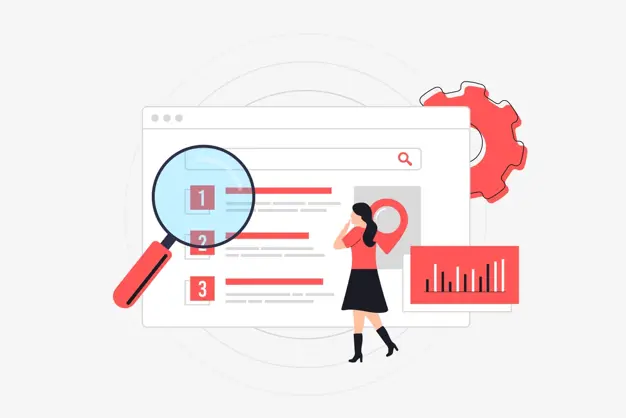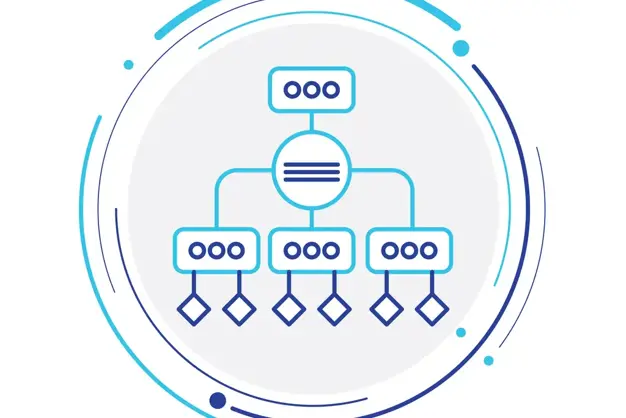If your business relies on local customers – and let’s face it, most do – then showing up in local search results is a big deal. Your business’ ability to show up in local packs and Google maps can help you earn the attention and hard-earned money of your local community.
The good news? Local SEO helps you target the people closest to you and stay both top of mind and top of the search results. Let’s dig into why local SEO is so important for your business and how you can effectively compete for the people closest to you.
Why Local SEO Matters
While general SEO aims to improve visibility across a broader audience, local SEO is a calculated approach to optimize a business's online presence for a specific geographic area. This location-based approach allows your business to concentrate on customers actively looking for products and services near them.
According to a study by Google, 46% of all Google searches are looking for local information. This means that if your business isn't optimized for local search, you're missing out on a huge opportunity to connect with potential customers. Local SEO also helps with:
- Enhanced Visibility: Given the competitive landscape for most local businesses, local SEO is essential for standing out from the crowd. By optimizing your online presence, you increase your chances of being discovered by potential customers in your target area.
- Increased Customer Acquisition: Local SEO targets consumers actively seeking businesses like yours in their area. By optimizing for local search, you perfectly position your business to capture a larger share of the local market.
- Revenue Growth: There is a direct correlation between increased visibility and customer acquisition. By implementing effective local SEO strategies, businesses can expect to see a measurable impact on their bottom line.
How Local SEO Has Evolved
Location-based search results date all the way back to 2003, and local SEO has changed drastically since then. There are multiple factors that Google considers for local relevance. Here are some of the key factors that marketers must consider when optimizing their content for local searches:
- Search Intent Over Location: Simply being located near the searcher isn’t enough these days. Google prioritizes businesses with content that aligns with searchers intent, even if that business isn’t the closest one on the map.
- More Prominent Local Features: Businesses must optimize for various search features, not just traditional rankings. The map pack, featured snippets, and local “things to know” dominate local search results.
- Importance of Behavioral Signals: Google analyzes how searches interact with your content. Factors like click-through rate and bounce rate help dictate whether your business is worth showing to searchers.
- Voice and Zero-Click Search: Google strives to deliver answers direct on results pages. Content needs to quickly and directly address queries and be written with AI in mind.
- Helpful Content: Google rewards businesses that provide original, useful content. Vague or shallow content just won’t cut it anymore, local search or not.

8 Core Elements of a Successful Local SEO Strategy
There is no single solution to succeeding in local searches. Good local SEO is about doing a lot of small things well – and doing them consistently. Let’s break down eight tactics that make up a comprehensive local SEO strategy.
Optimize Your Google Business Profile
Think of your Google Business Profile – formerly known as Google My Business – as your digital storefront. Your profile allows you to make a good first impression for potential customers and display essential information.
Of course, not all profiles are created equal. According to Google, customers are 70% more likely to visit your site and 50% more likely to make a purchase from businesses with a complete, optimized profile. Here are some tactics you can use to perfect your profile for local search results.
- Make sure each profile is complete, accurate, and updated regularly
- Add photos, services, and a compelling business description for each location
- Use posts to share updates or offers
- Monitor the Q&A section
Build Local Citations (NAP)
Consistency is key, and that extends beyond your Google Business Profile. Your business name, address, and phone number (NAP) should be the same in any space where customers may find you. Take time to review the following spaces to ensure that this information is consistent and correct.
- Your website
- Your Google Business Profile
- Social media profiles
- Online directories
- Online maps like Google Maps and Apple Maps
- Online review sites
- Community and industry websites
- Industry events and expos
Create Local Content
It’s important to show your neighborhood some love. Local content is a way to build trust, foster loyalty, and increase geographic visibility. The following tactics can help you reach regional audiences through helpful, human content tailored to where your customers are found.
- Hyperlocal service pages for target areas focused on location-based keywords and search intent
- Localized blog posts that highlight information and expertise tailored to specific regions
- Social media updates for local events, promotions, and other location-specific information
- Customer stories, case studies, and other regionally relevant social proof
Encourage Reviews and Manage Reputation
What people say about your business matters. Backlinko reports that 71% of consumers read reviews when researching businesses, and 37% of consumers use reviews as their primary source of information.
Simply put, your local SEO strategy should include a focus on managing your reviews and overall online reputation. That process starts with a few key tactics that can help you appease both potential customers and Google itself.
- Ask happy customers to leave detailed reviews on Google and other applicable platforms
- Respond to every review, good or bad. Your engagement shows Google (and customers) that you care
- Regularly assess your brand’s reputation on Google, social media, and any other place your brand is mentioned
Enhance Technical SEO & Mobile Optimization
A well-built, technically sound website lays the foundation for digital success. Page experience is a core part of optimizing your content for Google rankings, which is why it’s essential to improve the overall health and performance of your website in the following ways:
- Optimize images, reduce file requests, and take other steps to reduce site speed
- Ensure your site is responsive and easy to navigate on mobile devices
- Embrace user experience throughout the site by making your site accessible, establishing a clear content hierarchy, and other steps that make your site an enjoyable experience
- Avoid pop-ups and other elements that can distract and annoy users
Use Structured Data
Sometimes Google can use a little help. Add schema markup throughout your site so that Google can better understand your content so that your pages are more likely to show up in local packs and featured snippets. LocalBusiness schema markup can highlight your locations’ address, services, hours, and other key info relevant to local searches.
Optimize for Voice Search
When you’re creating content, think about the way that people talk instead of just how they type. According to Demandsage, “near me” and local searches make up 76% of all voice searches. You can optimize your content for voice search by following a few best practices.
- Use natural language that sounds like something a human would say and not a jumble of words created by a robot
- Focus on long-tail conversational and question-based keywords with clear search intent
- Create FAQ content that answers questions clearly and directly
Leverage User-Generated Content
One of the best ways to get local customers to trust you is to use content created outside of your business. User-generate content (UGC) allows you to leverage social media posts, videos, and other content created by other people to build trust and create more authentic bonds with your audience.
Here are a few examples of how you can leverage UGC for your local SEO efforts.
- Showcase customer testimonials on your website and other platforms
- Highlight customer reviews to provide social proof for your products and services
- Share social media posts from fans and others that highlight your brand
- Collaborate with micro-influencers to engage with their audience
Download: How to Choose the Right Digital Marketing Agency
Need a partner to support your local marketing endeavors? Download our guide to figure out what you should consider when choosing the right agency for your business.
Measuring Local SEO Success
Tracking the effectiveness of your local SEO efforts is crucial to understanding what's working and where improvements can be made. Here are some key performance indicators (KPIs) you can monitor to evaluate your local SEO efforts.
Tracking the effectiveness of your local SEO efforts is crucial to understanding what's working and where improvements can be made. Here are some key performance indicators (KPIs) you can watch to evaluate your local SEO efforts.
- Google Business Profile interactions: Calls, direction requests, and website visits
- Local keyword rankings
- Organic traffic by geo-segment
- Conversions from local pages
Local SEO Strategy Checklist
Ready to start optimizing your website for local SEO? Use this checklist to make inroads with potential customers near you:
🏪 Google Business Profile (GBP)
- Fully completed GBP with correct categories, hours, and service areas
- High-quality photos uploaded regularly
- Weekly Google Posts published
- Q&A section monitored and managed
📍 NAP Consistency
- Business name, address, and phone number are identical across all platforms
- NAP info verified on directories like Yelp, Bing Places, and Apple Maps
🌐 Website Enhancements
- Mobile-optimized, fast-loading website
- LocalBusiness schema markup added to relevant pages
- Location-specific landing pages created with unique content
- Internal links to blog posts and service pages added strategically
🌟 Reviews and Reputation
- Actively collecting reviews on Google and other platforms
- Responding to all reviews promptly and professionally
- Displaying reviews or testimonials on your website
📣 Content & Engagement
- Publishing blog or news content related to your local area
- FAQ section added using conversational, voice-search-friendly phrasing
- User-generated content collected and shared (e.g., photos, stories)
- Collaborating with local influencers or partners
📊 Tracking & Reporting
- Monitoring GBP performance (calls, direction requests, profile visits)
- Tracking rankings for target local keywords
- Reviewing traffic from location pages in Google Analytics
- Measuring conversions from local search visits
Need a Hand with Local SEO?
Local SEO takes time, consistency, and strategy, but the payoff is worth it. We’re here to provide the expertise and resources to help you create and implement a local SEO strategy that delivers real results, including Google Business Profile management.
Whether you’re new to local optimization or looking to improve your existing efforts, our team can help. Contact us to talk through your goals and build a roadmap to get you there.











